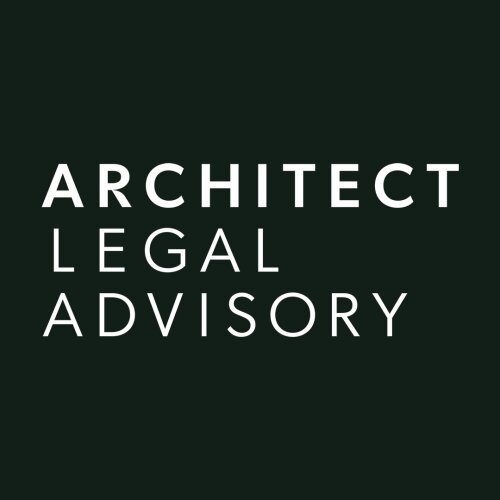Best Media and Entertainment Lawyers in South Korea
Share your needs with us, get contacted by law firms.
Free. Takes 2 min.
Or refine your search by selecting a city:
List of the best lawyers in South Korea
About Media and Entertainment Law in South Korea:
South Korea has a vibrant and dynamic media and entertainment industry, known for its K-pop music, popular TV dramas, and influential films. The country has a complex legal framework that regulates various aspects of media and entertainment, including copyright, intellectual property, contracts, and defamation.
Why You May Need a Lawyer:
You may need a lawyer in South Korea if you are involved in disputes over intellectual property rights, licensing agreements, or defamation claims. A lawyer can help you navigate the legal system and protect your rights in the media and entertainment industry.
Local Laws Overview:
In South Korea, the Copyright Act protects the rights of creators and artists in the media and entertainment industry. The Act regulates the reproduction, distribution, and public performance of copyrighted works. Additionally, the Act on Reporting and Using Broadcasting Programs governs the broadcasting sector, while the Performance Protection Act regulates live performances.
Frequently Asked Questions:
1. What is the process for registering a copyright in South Korea?
To register a copyright in South Korea, you must submit an application to the Korea Copyright Commission along with the required documentation and fee. Once your copyright is registered, you will have legal protection for your creative work.
2. Can I sue someone for defamation in South Korea?
Yes, defamation is a criminal offense in South Korea, and you can sue someone for making false statements that harm your reputation. A lawyer can help you file a defamation lawsuit and seek compensation for damages.
3. How do licensing agreements work in the media and entertainment industry in South Korea?
Licensing agreements in South Korea involve granting permission to use copyrighted works in exchange for payment. These agreements outline the terms and conditions for using the work, including the scope of the license and royalty payments.
4. What are the penalties for copyright infringement in South Korea?
Copyright infringement in South Korea can result in civil and criminal penalties, including fines and imprisonment. It is important to seek legal advice if you believe your copyright has been infringed.
5. How can I protect my intellectual property rights in South Korea?
You can protect your intellectual property rights in South Korea by registering your copyright, trademark, or patent with the appropriate government agencies. Additionally, you can enter into licensing agreements with other parties to protect your rights.
6. What is the role of the Korea Communications Commission in the media and entertainment industry?
The Korea Communications Commission is a government agency that regulates broadcasting, telecommunications, and the internet in South Korea. The Commission oversees the media and entertainment industry to ensure compliance with laws and regulations.
7. How are disputes resolved in the media and entertainment industry in South Korea?
Disputes in the media and entertainment industry in South Korea can be resolved through negotiation, mediation, arbitration, or litigation. A lawyer can help you choose the best option for resolving your dispute effectively.
8. What are the legal requirements for creating a talent agency in South Korea?
To create a talent agency in South Korea, you must comply with the Entertainment Industry Development Act, which regulates the management of entertainers. The Act outlines the requirements for operating a talent agency and protecting the rights of entertainers.
9. Are there any restrictions on freedom of speech in the media in South Korea?
While South Korea has a constitutionally guaranteed right to freedom of speech, there are restrictions on speech that incites violence, promotes hate speech, or defames others. It is important to be aware of these restrictions when engaging in media and entertainment activities.
10. How can I find a qualified lawyer for media and entertainment law in South Korea?
You can find a qualified lawyer for media and entertainment law in South Korea by contacting the Korean Bar Association or seeking referrals from other professionals in the industry. It is essential to choose a lawyer with experience in media and entertainment law to ensure the best representation for your case.
Additional Resources:
For more information on media and entertainment law in South Korea, you can visit the Korean Copyright Commission website or the Korea Communications Commission website. These government agencies provide valuable resources and guidance for individuals working in the industry.
Next Steps:
If you need legal assistance in media and entertainment law in South Korea, contact a qualified lawyer who can help you navigate the complex legal landscape and protect your rights. Be prepared to provide documentation and information related to your case, and work closely with your lawyer to achieve a favorable outcome.
Lawzana helps you find the best lawyers and law firms in South Korea through a curated and pre-screened list of qualified legal professionals. Our platform offers rankings and detailed profiles of attorneys and law firms, allowing you to compare based on practice areas, including Media and Entertainment, experience, and client feedback.
Each profile includes a description of the firm's areas of practice, client reviews, team members and partners, year of establishment, spoken languages, office locations, contact information, social media presence, and any published articles or resources. Most firms on our platform speak English and are experienced in both local and international legal matters.
Get a quote from top-rated law firms in South Korea — quickly, securely, and without unnecessary hassle.
Disclaimer:
The information provided on this page is for general informational purposes only and does not constitute legal advice. While we strive to ensure the accuracy and relevance of the content, legal information may change over time, and interpretations of the law can vary. You should always consult with a qualified legal professional for advice specific to your situation.
We disclaim all liability for actions taken or not taken based on the content of this page. If you believe any information is incorrect or outdated, please contact us, and we will review and update it where appropriate.
Browse media and entertainment law firms by city in South Korea
Refine your search by selecting a city.















